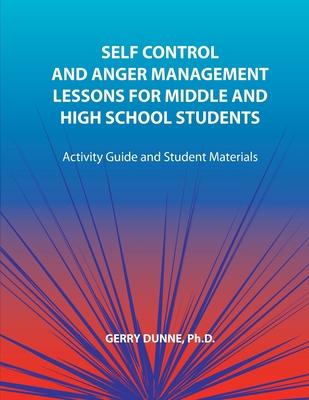Introduction
If I'd participated in lessons like the ones in this manual when I was the age of your students I know I would have lived a healthier and happier life. I was one of those youngsters who grew up in a family that denied not only the importance of feelings but usually feelings themselves, especially uncomfortable ones. Yet, our feelings are the prime movers of our choices and actions.
Looking back I recall that just about everyone in my family and at school frequently lived in a state of unrest. They had axes to grind--things to complain about. They were annoyed! Sometimes they were hateful and harsh with their words. Yet from the outside everyone thought our family was about as normal and good as a family could get. All of us did, in fact, love each other. We just put our anger first too many times. My junior high and senior high schools were also considered normal, "a cut-above" actually, but I remember very little joy and a lot of fear, hurt and shame.
I realize now how much I was influenced by this general discontent and pervasive anger. I grew up assuming that spreading gossip, fighting, holding grudges, protesting anything I didn't like and planning ways to get even were just what you did! Life wasn't normal unless you had a good, strong aggravation going about something or someone.
Did you have similar experiences? Are your students caught up in this kind of world? Some people are lucky. They're born into, and surrounded by, great circumstances and great models. But many others aren't. The fact is that many of us have, or had, anger habits that started early in our lives--habits we didn't even know we had. Inevitably, this means few skills in self control and anger management will develop. The result: troubles and misery as
life unfolds.
If you'd told me a few decades ago that I had an anger habit I would have either denied it or said, "No big deal--so what? Who doesn't?" But that kind of blindness wasn't working very well for me. At a certain point I realized it and started to make some deliberate changes.
I still struggle with my own anger at times but I've also recognized it for what it is. I became more self-honest. I've been working on understanding how anger operates and developing skills to use it instead of letting it control and use me. I took courses in psychology and wound up with a Ph.D. in Developmental Psychology which focuses on how people are affected by their experiences as they navigate through each stage of life. I went to some helpful counselors and I read a lot of excellent books. For the last ten years I've taught Anger and Conflict Management at Clark College in Vancouver, Washington using the text, Anger and Conflict Management: Personal Handbook.
Developing self control and learning how to manage anger leads us out of a dark world into a new one we've lit up ourselves. It's a world with healthy relationships, fun, more friends and enjoyment--also some detachment when it comes to difficult situations. I'm living in that world most of the time now and I seek more company.
I wrote this manual with its 20 lessons specifically to help you lead your students through a learning process that can place them on the road to Positive Personal Power!
